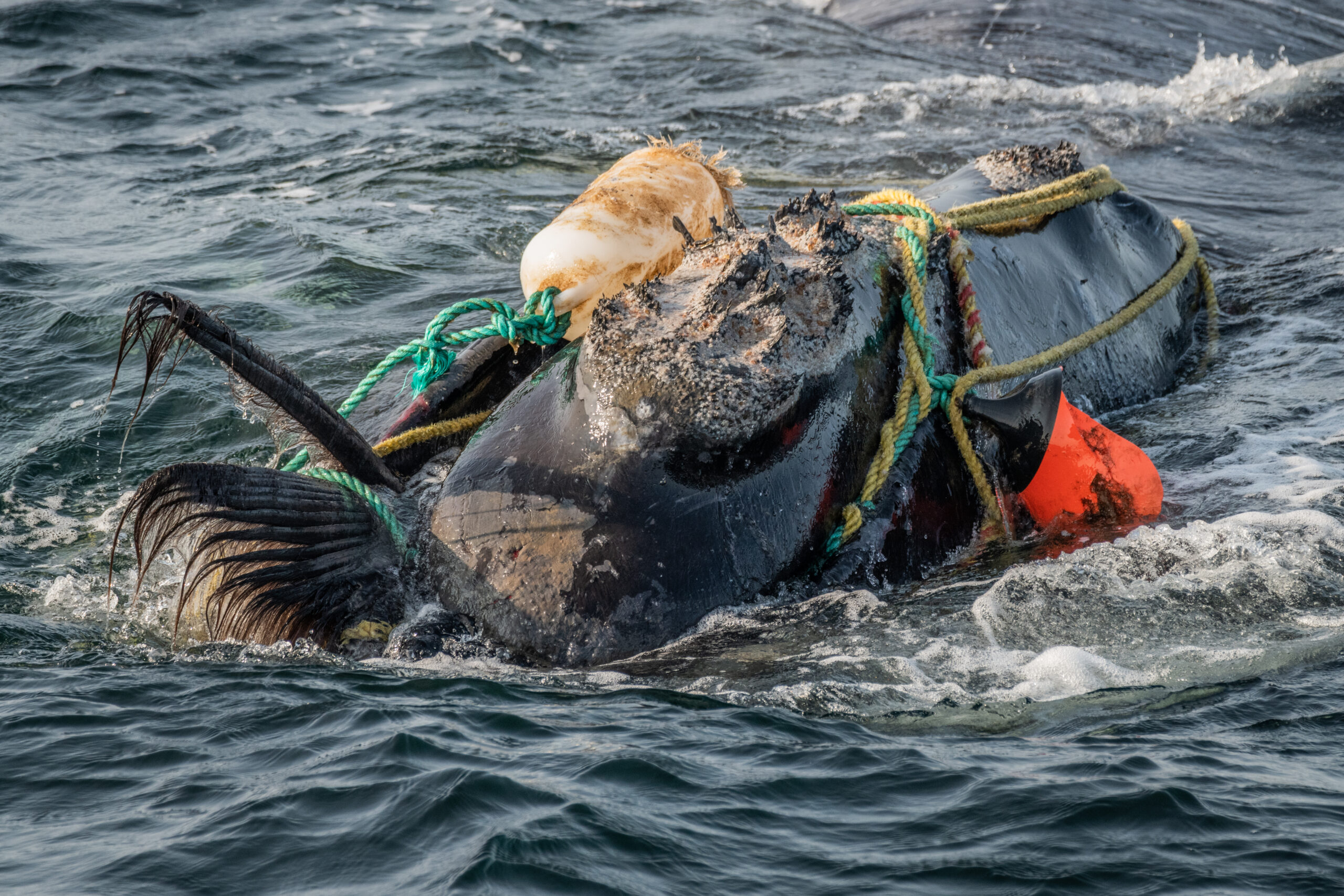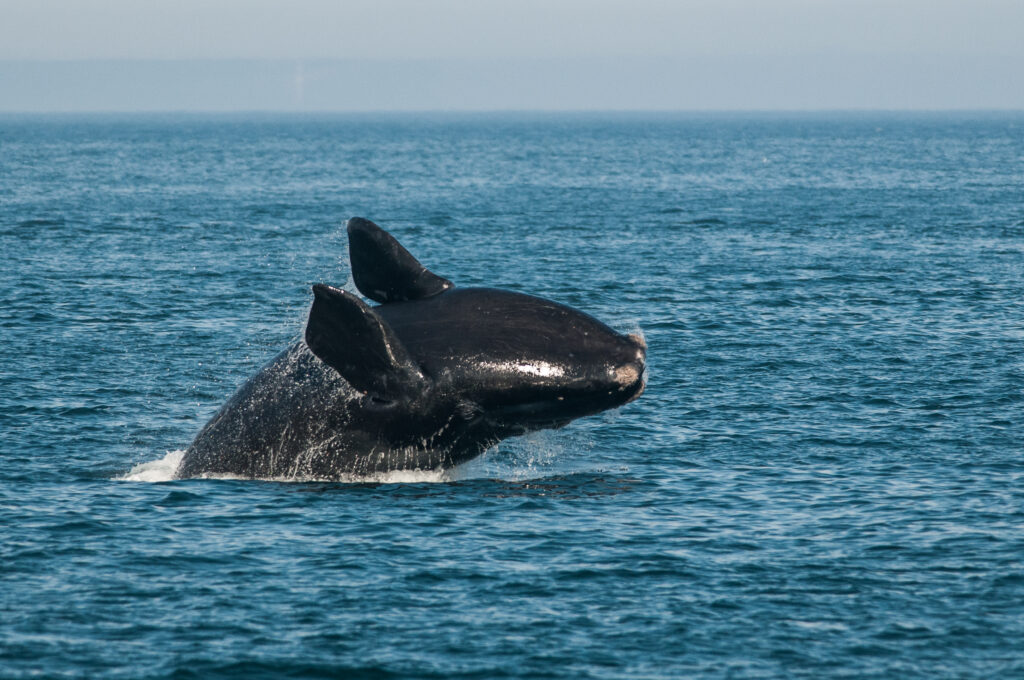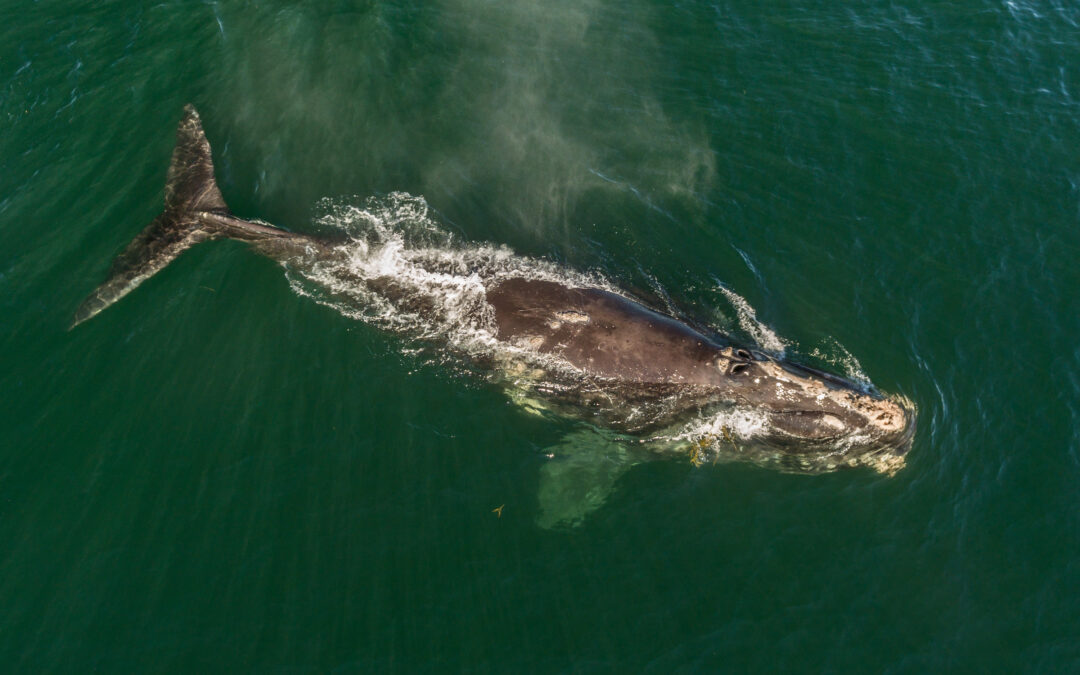Photos by: Nick Hawkins
Written by: Kathleen Collins, US Marine Campaign Manager, IFAW
This week we celebrate World Oceans Day. OneNature is happy to share information on the work on the North Atlantic right whale from our friends at IFAW. Whales, much like other species of wildlife, impact human wellbeing in many ways and play a critical role in maintaining healthy ecosystems. Thank you to IFAW for this guest blog post!
This June 8th is formally recognized by the United Nations since 1992 as World Oceans Day. Beyond recognizing the ocean as a critical resource to global health, it is fundamental that we acknowledge the impact of human activity on both the ocean and the rich biodiversity within. This World Oceans Day, IFAW renews its commitment to solving one of the greatest marine conservation challenges of our time—the preservation of Eubalaena glacialis, the North Atlantic right whale.
From its migratory route that spans the length of the Atlantic coast from Canada to Florida, the North Atlantic right whale is often dubbed ‘America’s whale.’ This critically endangered species lives and travels in some of the most heavily industrialized waters in the world. A once-thriving population of tens of thousands now lies sparse, struggling for survival with only an estimated 336 individuals.
Originally hunted for their oil-rich blubber a century ago during the time of whaling, they continue to face human-driven threats to this day. In fact, research conducted between 2003 and 2018 found the cause of nearly 90% of determinable right whale deaths were from entanglement in commercial fishing gear and unintended vessel strikes.
IFAW has focused its efforts first and foremost on addressing these two primary threats. Let’s begin with entanglements. Ropes used in the iconic fisheries of lobstering and crabbing pose one of the biggest threats to the survival of this whale. As they open their mouth to feed, they end up swimming and diving through a maze of these thick ropes. Once wrapped in rope, panic sets in, resulting in them twisting their bodies in an attempt to free themselves. Unfortunately, these movements often do the opposite, wrapping their bodies even more tightly.

Fishing ropes wrap around the head and mouth, damaging the baleen of a severely entangled North Atlantic right whale (Eubalaena glacialis) in the Gulf of Saint Lawrence, Canada. Fishing gear entanglement is a leading cause of death in North Atlantic right whales. IUCN Status: Endangered.
The effects of entanglements can persist for months or even years. The weight and drag of the gear, often documented to be upwards of hundreds of pounds, impedes the whale’s ability to swim or feed freely. This can result in chronic stress, ultimately impacting their ability to reproduce. An alarming 85% of North Atlantic right whales show signs of being entangled at least once in their lifetimes. This is completely avoidable. We know how to remove this threat.
First step—get rope out of the water. Transitioning fixed gear fisheries to “ropeless” on-demand fishing gear—a technology that removes the need for vertical lines in the water, except during the moment of active retrieval, is critical. The acoustic technology needed for this gear has been around for years—we know it works—and we know how to adapt it for the various fisheries. The use of this gear in state and federal waters requires special permits. Thus, we need updated regulations to remove potential barriers for this process while also addressing the cost to fishermen of implementing ropeless gear. Thankfully, The Coexistence Act of 2022 would authorize $15 million annually over the next decade to support research and development grants for projects designed to significantly reduce the impacts of human activities on North Atlantic right whales.
Now, let’s turn to vessel strikes. Right whales are notoriously slow, often swimming just beneath the surface of the water, making them hard to spot. Collisions with whales often result in significant injuries, if not immediate death. Seasonal speed restrictions of 10–knots have been implemented in some critical habitat areas and have proven to reduce the occurrence and severity of collisions. But more can be done. Citizen science apps like Whale Alert put the power to save whales, dolphins, and other marine mammals in your hands.
So what else can be done?
According to IFAW, we must continue on a critical path of working together, collaborating with governments, scientists, NGOs, and leveraging collective support from global conservation efforts including the IUCN Save Our Species program. These are critical building blocks to a sustainable future where species that may be out of sight are never out of mind.

North Atlantic right whale (Eubalaena glacialis) breaching in the Bay of Fundy, New Brunswick, Canada
This World Oceans Day, IFAW urges a renewed commitment to the North Atlantic right whale. Together we can address without hesitation one of the most pressing marine conservation challenges of our time. We can save this species from the brink of extinction, while also preserving the cultural heritage of the fishing industry. Long-term change is within our grasp. Our wellbeing depends on it.
Click here to learn more about the North Atlantic right whale.
